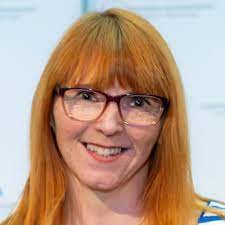This website uses cookies so that we can provide you with the best user experience possible. Cookie information is stored in your browser and performs functions such as recognising you when you return to our website and helping our team to understand which sections of the website you find most interesting and useful.

Kia ora! I’m Suzy Morrissey, one of the founders of the Aoteraroa New Zealand WEAll hub, and I recently gave ‘evidence’ to a special meeting of the UK All Party Parliamentary Committee (APPG) on the Green New Deal and the APPG on Limits to Growth.
The Green New Deal APPG was established to provide a cross-party platform for the development of a transformative Green New Deal for the UK and the Limits to Growth APPG is a platform for cross-party collaboration on shared and lasting prosperity in a world of environmental, social and economic limits. The APPG members are MPs and Peers and the session was chaired by Caroline Lucas MP and Clive Lewis MP.
I was invited to present ‘evidence’ for the consideration of the members of the APPGs ahead of the UK budget announcement, along with Lord Adair Turner (Institute for New Economic Thinking), Miatta Fahnbulleh (New Economics Foundation), and Robert Palmer (Tax Justice UK). The virtual session was also open to the public and over 100 people participated in the session.
In my evidence, I explained the limitations of using GDP to measure wellbeing, outlining how it ignores important elements and rewards negative behaviors. For example, unpaid work is not included in the calculation of GDP, but the sales of weapons are. Further, no adjustment is made for activities that negatively impact the planet, such as pollution or non-recyclable waste.
I also shared an example of an alternative approach from Aoteraroa New Zealand. The ‘Living Standards Framework’ measures wellbeing, using a stocks and flows based economic model, and a dashboard of elements. It draws on the OECD’s Better Life Index, with domains of current wellbeing (such as income, health, housing), and four capitals (natural, social, human, and financial and physical). The Living Standards Framework was devised by the NZ Treasury, to improve the quality of its advice, and provide a focus on inter-generational equity.
Shortly after the Labour-led coalition Government came into power at the end of 2017, they announced their intention to use the Living Standards Framework as a base for the world’s first ‘Wellbeing Budget’ in 2019, as well as to inform the 2018 Budget.
I worked at the NZ Treasury as Principal Advisor in the Office of the Chief Economic Advisor and was the policy and engagement lead for the Living Standards Framework. I shared my experience of determining the current wellbeing domains and capitals and finding suitable indicators to measure them . For example, although much of the Living Standards Framework draws from the OECD Better Life Model, we decided to include a new domain of current wellbeing called ‘cultural identity’ to measure features unique to Aotearoa (such as use of Te Reo Māori, the language of our first people). We also included ‘time use’ because it is so important, especially for gender analysis, even though it had been ten years since a national time use survey had been conducted by Stats NZ. Data gaps need to be highlighted so that they can be addressed.
I also discussed how the Living Standards Framework was applied by government to identify priority areas for the budget and to assess potential policies for funding. An initial assessment of wellbeing was undertaken using the measures and then ‘bids’ for funding from the national budget were assessed against the domains and capitals they were intended to improve.
I was delighted to be able to share Aoteraroa New Zealand’s world-leading work in bringing wellbeing economics to public policy.
Now my focus is back on building the Aoteraroa New Zealand WEAll hub and sharing the wonderful WEAll resources for policy makers and businesses on how to create a wellbeing economy. Contact myself, Paul, or Justin (emails on the Hub page here) if you would like to get involved.
You can watch the full APPG session below or on YouTube here:
the discussion?
Let us know what
you would like
to write about!

